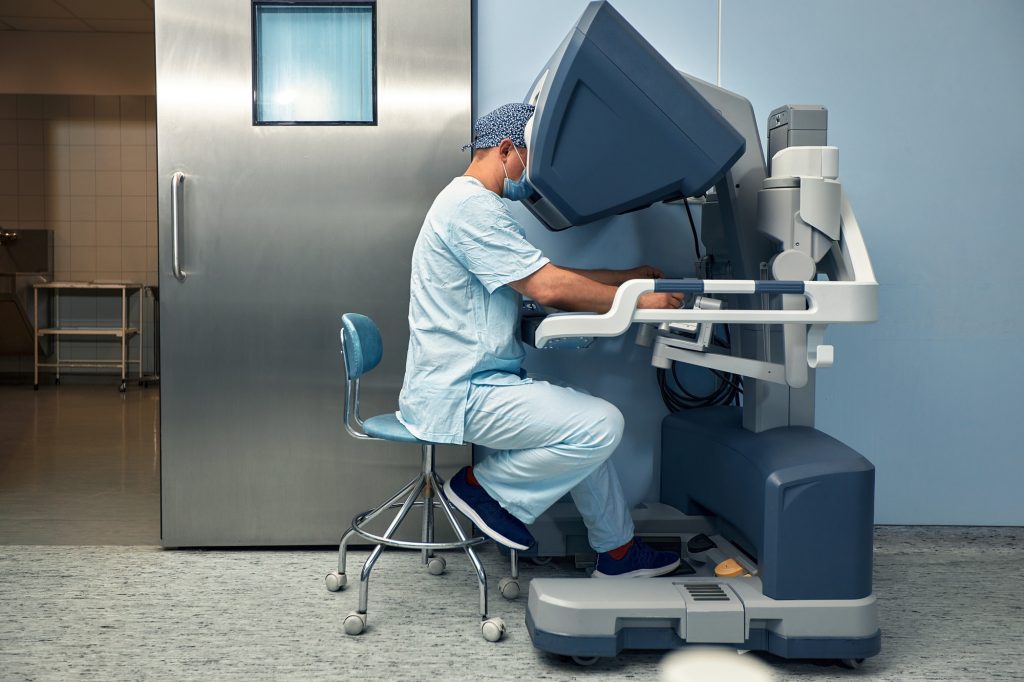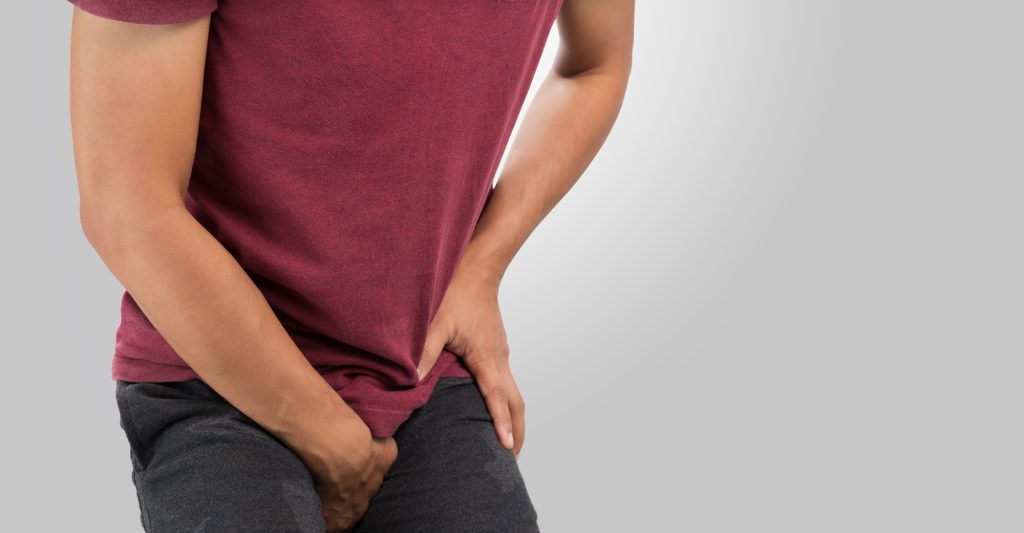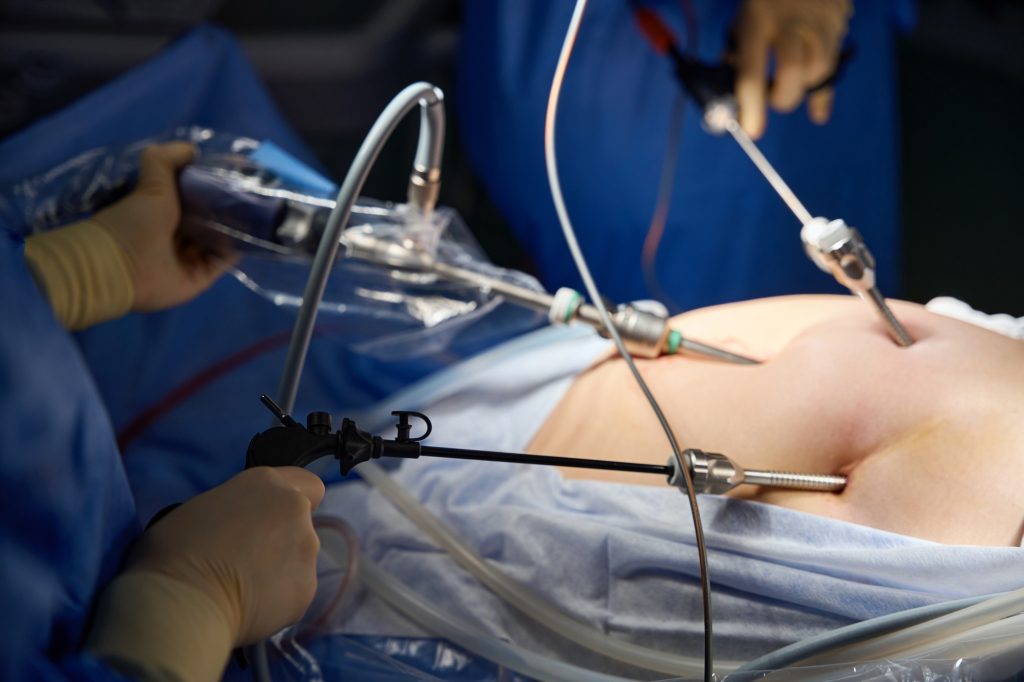Common Symptoms of Inguinal Hernia:
- Visible bulge in the groin or scrotum, which may increase in size when standing or straining.
- Pain or burning sensation in the affected area.
- Discomfort when bending over, coughing, or lifting heavy objects.
- Feeling of weakness or pressure in the groin.
- Nausea and vomiting in cases of strangulated hernias, which require urgent medical attention.
If you notice any of these symptoms, it’s important to consult a specialist to avoid complications and evaluate the best treatment option.
Causes and Risk Factors of Inguinal Hernia
Inguinal hernias can occur for various reasons, many of them related to physical strain or muscle weakness.
Risk Factors:
- Genetic predisposition: having a family history of hernias increases the risk.
- Repeated heavy lifting.
- Chronic cough or constipation, which increase abdominal pressure.
- Obesity, which places extra pressure on the abdominal muscles.
- Pregnancy, due to significantly increased intra-abdominal pressure.
- Aging, which can weaken the abdominal wall muscles.
- Previous abdominal surgeries, which may weaken the muscular wall.
Diagnosis of Inguinal Hernia
The diagnosis of an inguinal hernia is carried out through:
- Physical examination, where the doctor palpates the affected area while the patient is standing and straining.
- Abdominal ultrasound, useful in uncertain cases or in overweight patients.
- MRI or CT scan, recommended when a complicated or hard-to-detect hernia is suspected.
An accurate diagnosis helps determine the best treatment for each patient.

Advanced Treatments for Inguinal Hernia in Moncloa-Aravaca
At Centro Pad, we offer the most innovative and effective treatments to repair inguinal hernias with minimal invasion and fast recovery.
Robotic Surgery for Inguinal Hernia
Robotic surgery, performed with the Da Vinci system, is one of the most advanced techniques available today and offers multiple benefits:
- Greater precision and less damage to surrounding tissues.
- Less postoperative pain and reduced need for painkillers.
- Faster recovery and shorter hospital stays.
- Lower risk of recurrence and complications.
- Better aesthetic results, with minimal scarring.
Laparoscopic Surgery for Inguinal Hernia
Laparoscopic surgery is another minimally invasive alternative, performed through small incisions in the abdominal area. Its advantages include:
- Less postoperative pain compared to open surgery.
- Faster healing and lower risk of infections.
- Return to normal activities within a few days.
- Lower risk of postoperative adhesions.
Other Minimally Invasive Techniques
In addition to robotic and laparoscopic surgery, other options include:
- Tension-free mesh repair, which reduces postoperative pain and promotes a more comfortable recovery. A synthetic mesh is placed to reinforce the weakened area and prevent recurrence.
With all these techniques, and if the patient wishes, outpatient surgery is possible, allowing recovery at home on the same day of the procedure.
When Is Surgery Necessary for Inguinal Hernia?
Surgery is the only definitive treatment for inguinal hernia. It is recommended when:
- The hernia causes pain or limits daily activity.
- The bulge increases in size over time.
- There is a risk of strangulation, which can compromise blood flow to the intestine.
- There is persistent discomfort, even at rest.
At Centro Pad, we provide a personalized evaluation to determine the best procedure based on each patient’s needs.



